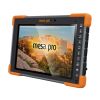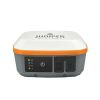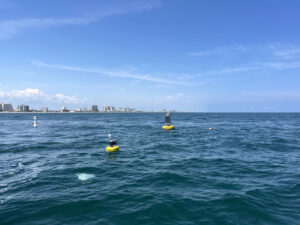Juniper Uinta Data Collection Software
Features
- Replace paper forms with efficient electronic data entry forms, for use with or without maps
- Quickly map points, lines, and areas. High-accuracy mapping supported
- Create custom project templates so field-collected data reflects your job(s)
- Expedited repair and warranty service
- Lifetime technical support
- More
Efficient Data Capture
Replace paper forms with efficient electronic data entry forms, for use with or without maps
Professional Mapping
Quickly map points, lines, and areas. High-accuracy mapping supported
Customizable
Create custom project templates so field-collected data reflects your job(s)
User-friendly
Simple interface allows users to be trained and collecting data in minutes
Sharable
Export data to a file, print professional PDF map reports, and create optional cloud projects
Free & Live Support
Get a jump start on your project with help from Juniper Systems' in-house customer success team
License supports use on two Windows 10 devices. Example: (1) Mesa 3 Rugged Tablet and (1) Office desktop or laptop. Includes all software updates, free phone and email technical assistance, access to all custom project templates.
In The News
Data-Driven Advocacy on the Lower Deschutes River
Like many freshwater environments, the Deschutes River in Oregon is under pressure from development, pollution, and climate change. Many rivers, streams and lakes in the Deschutes Basin do not meet Oregon water quality standards –where state water quality monitoring assesses levels of bacteria, pH, dissolved oxygen, temperature, and fine sediment. Hannah Camel is the Water Quality Coordinator for the Deschutes River Alliance (DRA), a non-profit organization that focuses on the health of the lower 100 miles of the Deschutes River–the area most affected by human intervention. As a data-driven organization, the DRA has benefited from the installation of two NexSens X2 data loggers.
Read MoreExpanding the Port Everglades: Real-Time Monitoring of Water Quality Conditions from Planned Dredging Operation
The Port Everglades in Broward County, Florida, serves large trade vessels and cruiseliners and incoming and outgoing recreational boaters. However, as cargo ships become larger, the port must expand. A dredging project led by the US Army Corps of Engineers will substantially deepen and widen the port's navigation channel to accommodate larger Panamax cargo ships and modern cruise liners. As a result of this project, a large amount of sediment will be displaced into the water column. This suspended sediment may settle outside of the project area, burying benthic organisms like corals, and possibly carrying harmful particulates to other regions. [caption id="attachment_39497" align="aligncenter" width="2560"] A CB-950 and CB-25 deployed on site at Port Everglades.
Read MoreIt’s Time to React to Water Quality: Proteus Multiparameter Probe aboard NexSens Buoy
Water quality monitoring is essential for safeguarding public health, protecting ecosystems, and ensuring the sustainability of water resources. Contaminants such as industrial pollutants, agricultural runoff, and sewage discharge can severely impact aquatic life and pose serious risks to human health if left unchecked. Traditionally, water quality monitoring has been a slow and labor-intensive process, requiring samples to be collected, transported to a lab, and analyzed—a process that can take days. However, with the advancement of real-time sensor technology, environmental agencies, researchers, and industries can now monitor water quality instantly.
Read More











